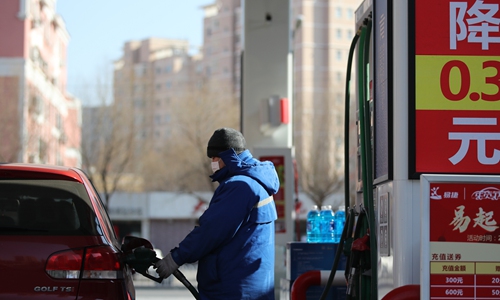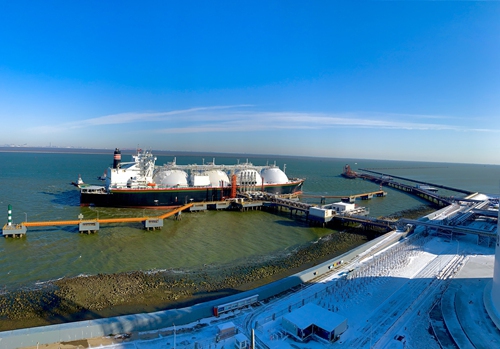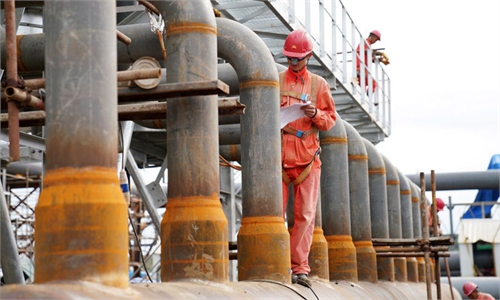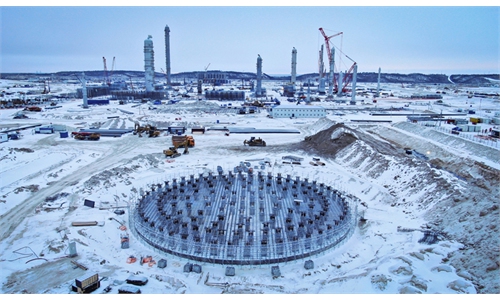
A worker fills his tank at a gas station in Shenyang, capital of Northeast China's Liaoning Province, on Wednesday. China reduced retail prices of gasoline and diesel from Wednesday based on recent changes in international oil prices. The retail price of gasoline was reduced by 420 yuan ($60) per ton and diesel by 405 yuan, according to the National Development and Reform Commission. Photo: cnsphotos
There is still a lot of uncertainty about the future trend of oil prices, which may reach $100 per barrel this year and drop to $85 a barrel in 2023, Ma Yongsheng, chairman of Sinopec, one of China's three state-owned oil giants, said on Monday, as the company reported record net profits last year thanks to higher energy prices.
Ma made the remarks during the annual earnings call on Monday. But he noted that an accurate prediction for oil prices is impossible as many factors will play a part, including geopolitics, macroeconomic trends and the strength of the US dollar.
On Sunday, Sinopec released its financial report for 2021, saying that it recorded its best profit in a decade, with net earnings totaling 71.21 billion yuan ($9.1 billion). Revenue stood at 2.74 trillion yuan last year, up 30.2 percent year-on-year.
The company attributed the excellent performance to increased sales of petrochemicals as well as soaring prices.
Last year, Sinopec's average crude oil sales price stood at 3,049 yuan per ton, an increase of 50.3 percent year-on-year. The average natural gas sales price reached 1,606 yuan per million cubic meters, up 18.8 percent from the previous year.
The oil price gain - resulting from rising geopolitical tensions - raised the urgency for China to accelerate switch to clean energies including wind and photovoltaic power in order to mitigate the impact of fossil fuel, as the country is dependent on crude oil imports, Lin Boqiang, director of the China Center for Energy Economics Research at Xiamen University, told the Global Times on Monday.
According to a report released by JLC, a service provider of integrated trading for energy and commodities in China, the country's import dependence ratio of crude oil reached 72.7 percent and 73.6 percent in 2019 and 2020, respectively.
This high level of dependency also means the country may find it harder to fend off risks, analysts noted.
In order to enhance the country's energy independence while ensuring supply, China's National Development and Reform Commission issued a five-year plan for a modern energy system on March 22, highlighting that the country will keep annual crude oil output at 200 million tons and boost natural gas production to 230 billion cubic meters by 2025.
In response to the national policy, the company will increase its investment to 198 billion yuan in 2022, in order to enhance output mainly in crude oil bases in Shunbei and Tahe in Northwest China's Xinjiang Uygur Autonomous Region, as well as natural gas fields in Southwest China's Sichuan Province, according to a company statement filed to the Shanghai Stock Exchange on Sunday.
"The move will contribute to the country's reduction of imported oil dependency," Lin said.
Global Times




